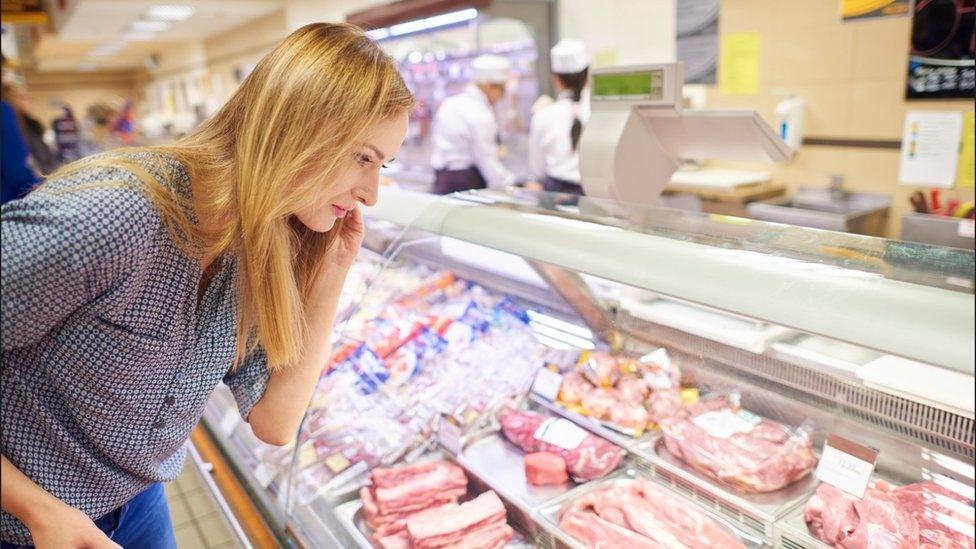Consumers were possibly at risk from contaminated meat, says FSA
- Published

Consumers may in the past have been at risk from contaminated meat, the UK's food watchdog has admitted.
The Food Standards Agency (FSA) is investigating allegations a rogue meat supplier falsely labelled foreign pork as British, and mixed rotting pork with fresh products for processing.
Farmers Weekly, which first reported the story, also claimed e-coli and listeria paperwork was falsified.
The FSA said there were no "current concerns" about meat on the market.
But its chief executive Emily Miles told the BBC's Today programme it was "possible" people had been at risk from contaminated meat in the past.
The FSA started its initial investigation about mislabelling of products in August 2021 and seized more than six million documents, which it said are now being gone through.
"The food safety allegations have been much more recent and we're following those up. We went to the premises last week and made three arrests and seized millions more documents," Ms Miles said.
She said it fell to local authorities to regulate meat processors and that the FSA was the "last line of defence for particularly serious allegations".
"What's meant to happen is that retailers and manufacturers, who are responsible for ensuring food is safe, have to be vigilant and do their own audits and sampling.
"The FSA is not on the ground the whole time at all, in fact we act on intelligence. As soon as we got intelligence, we acted," Ms Miles said.
However, the FSA chief said her department only had 27 staff running "about eight live investigations".
"We can only go as fast as we can with that resource. For this particular investigation, we were reviewing six million documents, we've now added a lot more."
Farmers Weekly, which said multiple sources had said it was common to mix rotting pork with fresh goods for further processing, also reported claims that meat was "sometimes thawed out on the factory floor".
Deputy editor Abi Kay told Today: "Most concerningly, two employees said the paperwork which would pick up bacteria like listeria and e-coli, was falsified.
"That is no joke, listeria and e-coli can kill people."
Ms Kay also explained how the alleged fraud worked by buying a "relatively small volume of British meat" from an approved supplier.
"Then they would use the traceability information from this delivery for all the products it made in that week with the majority coming in from elsewhere in the world.
"One source even said they were 100% confident that all the retailers the company it supplied had been victims of country-of-origin fraud."
Farmers Weekly believed this was not a one-off and claimed to have evidence this went much further than the one business currently under investigation and raised questions about the audit process.
"In this factory when the auditors visited, they would show up unannounced, but they had a certain amount of time between signing in to the premises and being allowed onto the factory floor.
"In that short space of time a text message would go out and all the staff would move any suspect products onto lorries, the loading bay or a trolley and push it round one side of the factory while auditors and management were on the other.
"That is how ridiculous this is," she added.
Ms Miles admitted the FSA needed to look at the audit process and whether it could be "tightened up".
President of the National Farmers' Union Minette Batters said the allegations were "absolutely deplorable".
"Consumers and farmers need to know the whole system is honest and that when something says it is British, it genuinely is."
Ms Batters said the FSA needed more resources: "We are going to have a lot more imports coming into this country, we're a very big marketplace with nearly 70 million people.
"Nothing matters more than making sure the food on our plates is safe."
The BBC has approached the government for comment.
- Published30 March 2023
